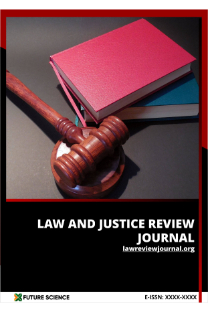History and tendencies in the development of criminal procedure law in the Scandinavian countries, and in Norway in particular
___
Andenæs/Myhrer 2009 = Andenæs, Johs. and Myhrer, Tor-Geir. Norsk straffe-prosess (Norwegian Criminal Procedure). 4. ed., Universitetsforlaget, Oslo 2009.Hagerup 1919 = Hagerup, Francis. Ret og Kultur i det nittende aarhundre (Law and Culture in the nineteenth Century). Oslo 1919.
Holme 1985 = Holme, Jørn. Fra amtmann til statsadvokat : om overgangen til en selvstendig påtalemyndighet (From Provincial Commissioner to Prosecutor: About the Transformation to an Independant Prosecution Authority). Universitetsforlaget, Oslo 1985.
Hov 2010 = Hov, Jo. Rettergang (Court Procedure). Papinian, Oslo 2010.
Husabø 2009 = Husabø, Erling Johannes. The jury system in Norway. Court Pro-ceedings with Participation of Juries, European Commission for Democracy through Law (Venice Commission), Bishkek, Kirgizstan 8-9 September 2009.
Jebens 1997 = Jebens, Sverre Erik. The Right to a Fair Trial in Norway. In: Weiss-brodt, David and Wolfrum, Rudiger, eds. The Right to a Fair Trial. Springer, Berlin 1997.
Lindell 2005 = Lindell, Bengt, Eklund, Hans, Asp, Petter and Andersson, Torbjörn. Straffprocessen (The Criminal Procedure). Uppsala 2005.
Mathisen, NJIL 2010 = Mathisen, Gjermund. Nordic Cooperation and the Euro-pean Arrest Warrant: Intra-Nordic Extradition, the Nordic Arrest Warrant and Be-yond. Nordic Journal of International Law 79: 1-33.
Matningsdal, SSL 2007 = Matningsdal, Magnus. The Influence of the European Convention for the Protection of Human Rights and Fundamental Freedoms on Norwegian Criminal Procedure. Scandinavian Studies in Law 51: 399-418.
Nergelius 1996 = Nergelius, Joakin. Konstitutionellt rättighetsskydd (Constitutional Protection of Rights). Stockholm 1996.
Renckendorf 2009 = Renckendorf, Jan. The jury system in Denmark. Court Pro-ceedings with Participation of Juries, European Commission for Democracy through Law (Venice Commission), Bishkek, Kirgizstan 8-9 September 2009.
Robberstad 1999 = Robberstad, Anne. Mellom tvekamp og inkvisisjon : straffe-prosessens grunnstruktur belyst ved fornærmedes stilling (Between Duel and In-quisition: The Basic Structure of Criminal Procedure in Light of the Role of the Victim). Universitetsforlaget, Oslo 1999.
Smith 2008 = Smith, Eva, Jochimsen, Jørgen, Kistrup, Michael and Poulsen, Jakob Lund. Straffeprocessen (The Criminal Procedure). 2. ed., Thomson, København 2008.
Strandbakken, IRPL 2001 = Strandbakken, Asbjørn. Lay Participation in Norway. International Review of Penal Law 72: 225-252.
- ISSN: 1309-9485
- Yayın Aralığı: 2
- Başlangıç: 2010
- Yayıncı: Türkiye Adalet Akademisi
La laïcité Française à l'épreuve du port du foulard islamique et de celui de la burqa
Building constitutionalism in Kosovo/A
A restorative justice approach to working with children in residential care
The rule of law through international criminal justice mechanisms
Zur gegenwärtigen Deutschen diskussion über willensfreiheit und strafrecht
Accountability and transparency of the high judicial councils- best practices and examples
Globalization and legal education- a Japanese perspective
